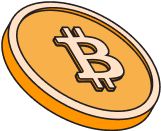How to Choose an Exchange to Buy and Trade Dai
Considerations such as trading fees, payment methods, security, and the platform’s accessibility can significantly impact your trading experience. Additionally, the exchange’s reputation and liquidity for DAI are critical in ensuring that your transactions are executed efficiently and securely. By carefully assessing these elements, you can choose the best exchange for your needs.
Reputation Amongst DAI Traders
The reputation of an exchange within the DAI trading community is an important consideration. Researching reviews and feedback from other traders can provide insights into the platform’s reliability, customer service, and overall user experience. An exchange with a strong reputation is likely to offer better security, support, and trading conditions, making it a safer choice for your DAI transactions.
Trading Fees
Trading fees are an essential consideration when choosing an exchange for DAI. These fees can include maker and taker fees, which vary between platforms. Some exchanges may offer lower fees for trading stablecoins like DAI or provide discounts for high-volume traders. Comparing these fee structures across different exchanges is crucial for minimizing costs and maximizing your returns, particularly for frequent traders.
Payment Methods
The availability of payment methods is a critical factor when selecting an exchange to trade DAI. Some platforms support a wide range of payment options, including bank transfers, credit/debit cards, and crypto-to-crypto transfers. The convenience, speed, and fees associated with these payment methods can vary, so it’s important to choose an exchange that supports the options that best meet your needs.
Security
Security should be a top priority when choosing an exchange to trade DAI. Look for crypto trading platforms that offer robust security measures, such as two-factor authentication (2FA), encryption, and cold storage for digital assets. Additionally, consider the exchange's history with security breaches and its reputation for protecting user funds. A secure exchange ensures that your DAI holdings are safe from potential threats.
Accessibility
Accessibility refers to both the ease of use of the exchange and its availability in your region. A user-friendly interface is important for a seamless trading experience, especially for those new to cryptocurrency trading. Additionally, ensure that the exchange is available in your country and supports your local currency, as this can influence the convenience of depositing and withdrawing funds.
Liquidity of Crypto Assets
Liquidity is a crucial factor when trading DAI, as it affects how quickly and efficiently you can execute trades. High liquidity ensures that your orders can be filled without significantly affecting the market price. When selecting an exchange, it’s important to choose one with substantial trading volumes for DAI to ensure smooth and rapid transactions, particularly during volatile market conditions.
Support
Reliable customer support is essential for resolving any issues that may arise during your trading activities. Look for exchanges that offer multiple support channels, such as live chat, email, or phone, and have a reputation for quick and helpful responses. Effective customer support can make a significant difference in your overall trading experience, ensuring that problems are addressed promptly.
User Interface
The user interface of an exchange can significantly impact your trading experience. A well-designed, intuitive interface allows you to navigate the platform easily, execute trades efficiently, and monitor your portfolio without difficulty. Whether you're a beginner or an experienced trader, a user-friendly interface can enhance your ability to focus on trading strategies rather than struggling with platform functionality.
Types of Dai Exchanges and Trading Platforms
When trading Dai, there are various types of exchanges and platforms to consider, each offering different features suited to various trading needs.
Decentralized Exchanges (DEXs)
Decentralized exchanges (DEXs) allow users to trade Dai directly from their wallets without relying on a central authority. These platforms provide enhanced security and privacy, as users retain control over their funds. DEXs are especially popular within the DeFi space, where Dai is frequently used for various financial applications.
Automated Market Makers (AMMs)
Automated Market Makers (AMMs) are a type of decentralized exchange that uses liquidity pools to facilitate trading. In AMMs, users can provide liquidity by depositing their Dai into a pool, earning fees from trades executed within that pool. This model has gained popularity due to its ability to provide continuous liquidity and its decentralized nature.
Peer-to-Peer (P2P) Platforms
Peer-to-peer (P2P) platforms allow users to buy and sell Dai directly with each other, often supporting a wide range of payment methods. P2P platforms offer flexibility and privacy, but users must exercise caution when dealing with unverified traders. These platforms are particularly useful in regions with limited access to traditional exchanges.
Hybrid Exchanges
Hybrid exchanges combine features of both centralized and decentralized platforms, offering the security and user control of DEXs while maintaining the liquidity and speed of centralized exchanges. These platforms aim to provide the best of both worlds, making them an attractive option for trading Dai.
Stablecoin-Focused Exchanges
Stablecoin-focused exchanges specialize in trading stablecoins like Dai, offering a wide range of trading pairs and often providing lower fees for stablecoin transactions. These platforms are ideal for users who primarily trade stablecoins and seek a marketplace that caters specifically to their needs.
How to Start Trading DAI
- Sign Up on a Dai Exchange: Choose an exchange that supports Dai and create an account by providing your email address and creating a password. Complete any necessary identity verification steps.
- Deposit Funds: Deposit funds into your account using your preferred payment method, such as a bank transfer, credit card, or another cryptocurrency.
- Select a DAI Trading Pair: Choose the DAI trading pair you want to trade, such as DAI/USDT or DAI/ETH.
- Place Your Trade: Place an order to buy or sell Dai, choosing between a market order for immediate execution or a limit order to set your preferred price.
- Withdraw Your DAI: After trading, consider withdrawing your Dai to a secure wallet to ensure the safety of your assets.
Exchange Fees When Buying and Selling DAI
When trading Dai, understanding the various fees that exchanges may charge is crucial for managing your costs and maximizing your returns.
Trading Fees
Trading fees are applied to every buy or sell order you place on an exchange. These fees are typically a small percentage of the trade value and can vary based on factors like trading volume and the exchange's fee structure. Some platforms offer discounts for high-volume traders or for using specific tokens to pay fees.
Deposit Fees
Deposit fees may apply when you fund your account with fiat currency or cryptocurrencies. These fees can vary depending on the payment method used and the exchange's policies. It’s important to compare these fees, especially if you plan to make frequent deposits, as they can add up over time.
Withdrawal Fees
Withdrawal fees are charged when you transfer Dai from the exchange to an external wallet. These fees can vary based on the destination (e.g., another wallet or a bank account) and the exchange’s fee structure. Minimizing withdrawal fees is crucial for preserving your gains, particularly if you frequently move assets off the exchange.
Network Fees
Network fees, or gas fees, are incurred when transferring Dai on the Ethereum blockchain. These fees fluctuate based on network congestion and can impact the cost of trading Dai, particularly when moving funds between wallets or exchanges. Monitoring network fees and timing transactions during periods of lower congestion can help reduce costs.
History of Dai
Dai is a decentralized stablecoin created by the MakerDAO platform, launched in December 2017. Unlike other stablecoins that are backed by fiat reserves, Dai is collateralized by cryptocurrency assets locked in smart contracts on the Ethereum blockchain. Dai is designed to maintain a stable value of one U.S. dollar, making it a popular choice for traders seeking stability within the volatile crypto market. The innovative design of Dai has made it a key player in the decentralized finance (DeFi) ecosystem, enabling users to engage in lending, borrowing, and other financial activities without the need for traditional intermediaries.
The Unique Value Proposition of Dai
Dai’s unique value proposition lies in its decentralized nature and stability. Unlike other stablecoins that rely on central reserves of fiat currency, Dai is backed by a diversified pool of crypto assets locked in smart contracts. This decentralized model reduces the risk of centralization and enhances transparency, making Dai a trusted stablecoin within the DeFi ecosystem. These attributes make Dai an attractive option for traders looking for stability, and they influence the choice of exchange or trading strategy, particularly in decentralized environments.
The Future of Dai in the Cryptocurrency Market
Dai’s role in the cryptocurrency market is likely to grow as decentralized finance (DeFi) continues to expand. With its stable value and decentralized backing, Dai is positioned to remain a critical component of the DeFi ecosystem, supporting a wide range of financial applications. Upcoming developments in Ethereum scalability and Layer 2 solutions could further enhance Dai’s utility by reducing transaction costs and increasing accessibility. As more users seek stable and decentralized options in the crypto space, Dai’s adoption is expected to rise, making it a strong contender for those interested in stablecoins and DeFi.
Other Altcoins You Can Trade
While DAI stands out as a stable and decentralized asset within the crypto ecosystem, there are many other altcoins that offer unique features and potential benefits. Whether you're interested in innovative blockchain platforms, privacy-focused networks, or decentralized finance projects, diversifying your portfolio can open up new opportunities. Consider exploring the following altcoins:
FAQ: Dai Exchange Platforms
What makes Dai different from other stablecoins?
Dai is unique among stablecoins because it is decentralized and backed by a diversified pool of crypto assets rather than a centralized reserve of fiat currency. This decentralized model reduces the risk of centralization and enhances transparency, making Dai a popular choice in the decentralized finance (DeFi) space.
How can I ensure my Dai is secure on an exchange?
To secure your Dai on an exchange, choose platforms with strong security measures, such as two-factor authentication (2FA), cold storage, and encryption. Additionally, consider withdrawing your Dai to a secure, private wallet after trading, as this reduces the risk of loss due to exchange hacks or other security breaches.
Are there any exchanges that offer zero-fee trading for Dai?
Some exchanges may offer zero-fee trading for Dai as part of promotional campaigns or as a feature for specific trading pairs. However, these offers are typically limited in time or scope, so it’s important to check the exchange’s fee structure and terms to understand any potential costs.
What are the tax implications of trading Dai?
The tax implications of trading Dai vary by country, but generally, profits from trading Dai are subject to capital gains tax. It’s important to keep detailed records of all your transactions, including the purchase price, sale price, and dates, to accurately report your gains or losses. Consulting with a tax professional can help ensure compliance with local tax laws.
How do liquidity pools work with Dai?
Liquidity pools allow users to deposit Dai into a smart contract that facilitates trading on decentralized exchanges. In return, liquidity providers earn a share of the trading fees generated by the pool. Participating in a liquidity pool can provide passive income, but it also carries risks such as impermanent loss, where the value of your staked assets can fluctuate.
Is staking available for Dai?
Staking is generally associated with proof-of-stake (PoS) cryptocurrencies rather than stablecoins like Dai. However, Dai can be used in various DeFi platforms for earning interest or rewards, such as through lending or liquidity provision, which can be similar to staking in terms of earning passive income.
Can I trade Dai on a decentralized exchange?
Yes, Dai is commonly traded on decentralized exchanges (DEXs), which allow users to trade directly from their wallets without relying on a central authority. DEXs provide enhanced security and privacy, making them a popular choice for trading Dai within the decentralized finance (DeFi) ecosystem.
Can I buy Dai with fiat currency on all exchanges?
Not all exchanges support direct purchases of Dai with fiat currency. Some platforms may require you to first purchase a more widely accepted cryptocurrency, like Bitcoin or Ethereum, and then trade it for Dai. However, many major exchanges do offer fiat-to-Dai pairs, providing a more straightforward process for acquiring Dai.
What happens if an exchange holding my Dai goes bankrupt?
If an exchange holding your Dai goes bankrupt, your assets may be at risk, depending on the platform’s policies and local regulations. Some exchanges may have insurance or compensation schemes, but these are not guaranteed. To mitigate this risk, it’s advisable to withdraw your Dai to a personal wallet, especially if you hold significant amounts.
Conclusion: The Best DAI Buy & Sell Platforms Ranked by Bitcoin.com
Choosing the best platform to buy and sell Dai (DAI) is crucial for optimizing your trading experience. Each platform offers unique features, so it’s important to evaluate them based on your specific trading needs and goals. Remember, our rankings are regularly updated to reflect the latest developments in the market, so check back frequently to stay informed on the top platforms for trading DAI.
Business & Partnership Enquires
For business or partnership queries, please contact us through affiliates@bitcoin.com. Our marketing experts will assist you as soon as possible.


























